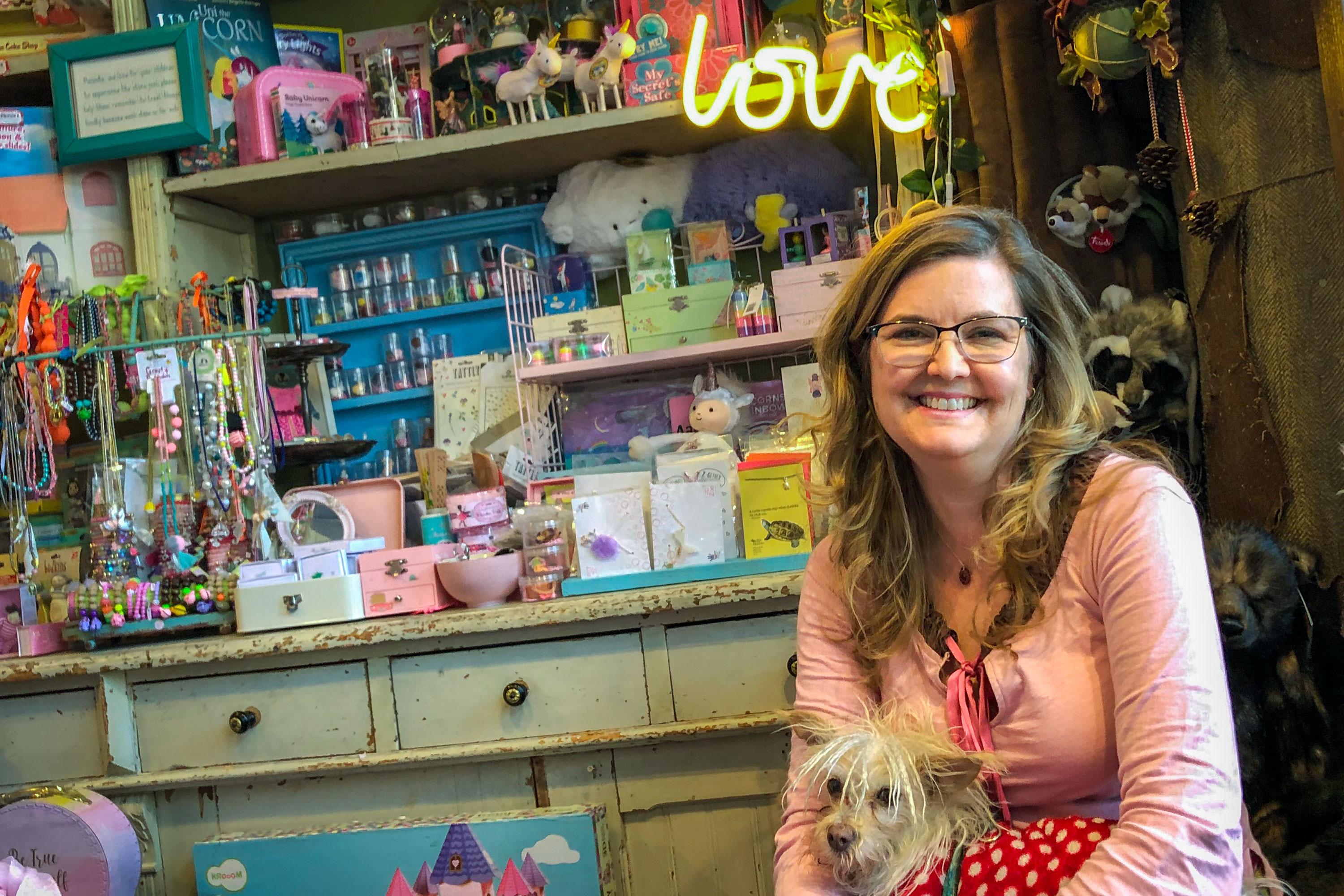

‘Tis the busiest season for Talulah Jones, the children’s boutique north of Denver’s Capitol Hill neighborhood. As Christmas approaches, the shelves are jammed with non-electronic toys, clothing and books.
Customers sometimes apologize for lingering too long.
That’s the biggest compliment for owner Robin Lohre: “Oh my goodness, you’re taking it all in, you’re appreciating, [and] you’re loving the experience, the community.”
While the experience is enchanting, and part of what sets Talulah Jones apart from other stores, Lohre said 2018 sales are down 3 percent and 3 percent last year — which she said is a shift. The “new economy of Amazon and free shipping,” as she called it, is a constant struggle for her and her fellow retailers.
This holiday season is expected to surpass $1 trillion in sales nationwide and brick and mortar still represents more than 90 percent of retail. Every year though, online sales eat into the profits of traditional brick and mortar stores — more so, in a year where stalwarts like Toys ‘R’ Us and Sears closed or filed for bankruptcy. Denver’s hot economy notwithstanding, some local stores are braced for a down year.
Online sales have shown consistent growth, up between 14 and 17 percent year over year since 2014, according to a report from CBRE. That’s three times greater than overall retail sales growth.
On Cyber Monday, the online pregame for holiday shopping, Adobe and Amazon found that Denver buyers spent the most per person nationally. University of Denver professor Ali Besharat pointed out that Colorado was among the top 3 in highest spending.
Besharat said it’s a sign “that the economy is doing good, and obviously the customers feel more comfortable and confident spending their money” for the holidays.
Also curious, Amazon is opening in a mall. The US mall vacancy rate jumped to 9.1% the largest one-quarter jump since the Great Recession.
But I didn’t see a single vacant space at Park Meadows. Exec said this was a strategic location for them. pic.twitter.com/wNu8EGopix
Consumer confidence isn’t broken out by state, but the Mountain region had the highest consumer confidence in the nation, according to the most recent report from The Conference Board. The state’s low unemployment rate of just 3.2 percent and a year of strong wage growth probably contribute to that confidence.
Besharat said that could explain why Amazon opened its third physical store in the Park Meadows mall at the start of November.
“I think that was a really good move,” Besharat said. “Especially for certain products that are experiential, that customers want to touch and feel.”
But it’s hard to know what to make of the Amazon’s Four Star store. It’s filled to the brim with blenders, iPhone cases, Roombas and more of the online retailer’s most popular products. The store’s inventory constantly shifts based on what’s hot.
At the new Amazon 4-star store in Park Meadows mall. Only the second of its kind in the country right now. pic.twitter.com/Unb3i7OTXT
Joe Hill from Denver looked like a kid in a candy store.
“If you’re an Amazon shopper it really isn’t overwhelming,” Hill said. “You’re just kind of walking around seeing the stuff physically, touching it, as opposed to going online.”
Call it strolling through the store instead of scrolling.
Mall vacancies spiked nationwide after the Great Recession, from about 7 percent to more than 11 percent during the economic crisis, according to data from Reis. They never recovered either, thanks in part to Amazon — which makes the online giant’s mall play curious. Vacancies today are still almost 9 percent.
An executive from Amazon said they choose Park Meadows because there are no vacant spaces and it’s surrounded by Denver’s affluent suburban neighborhoods.
The growth of e-commerce also demands warehouse space. In the Denver metro’s case, millions of additional square feet (and a few thousand jobs) split between Aurora and the new distribution center in northern Thornton. A whole new shopping infrastructure built up around the ease of a click.

E-commerce isn’t new, said Tyler Carner, a senior vice president at CBRE and a specialist in industrial properties, but their late arrival to Denver is.
“They’ve been doing it in other markets like New York and Atlanta and Dallas and Los Angeles for a good four to five years,” he said. “So, we’re just kind of new on the scene.”
The scale of online retail is mind boggling for toy store owner Robin Lohre. She believes so strongly in small business that she said she’s never bought anything off Amazon.
“Getting out there and making your vote count as far as your dollars is the ticket to keeping people and stores like this going,” Lohre said.









